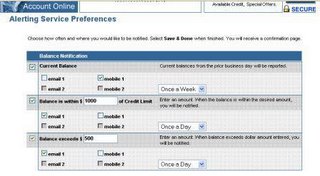Identity Theft Victim's Quick Reaction Saves $755,000 Retirement Fund
A quick reaction by an identity theft victim saves her entire
retirement account after it mysteriously disappears.
$755,000 would have been spent entirely or
become completely untraceable to any recovery
attempts by law enforcement, had it not been
quickly discovered by the victim, a woman residing
in Delaware.
The woman called police immediately upon discovering the theft.
The resulting fraud investigation uncovered the money had been
transferred electronically to a phony account that was created
within the online stock-trading service, E*Trade Financial.
As a result of the quick reaction by the identity theft victim
and law enforcement, the entire $755,000 was recovered.
The woman was not sure how her account was accessed as
investigators are continuing with the search through internet
service provider records.
The good news, here, is the identity theft victim did
several things right which we advocate as part of your
prevention strategy:
- Frequent monitoring on-line of your financial accounts
- Scrutinizing your balances and especially withdrawal transactions
- Not hesitating to contact proper authorities when suspicious
activity is discovered
"burglar alarm" on all of your banking and credit profiles
to constantly monitor for irregular activity to alert you
via your favorite wireless or email device. Also, make
sure to check your public records quarterly for any
non-credit report data items which are just as harmful
to your reputation if an identity thief has generated
false arrests or bankruptcies in your name.



















